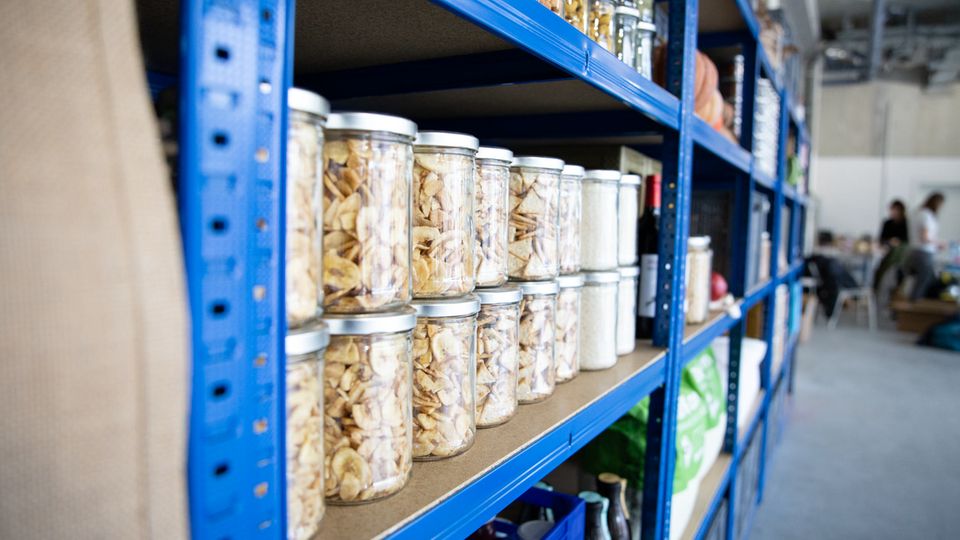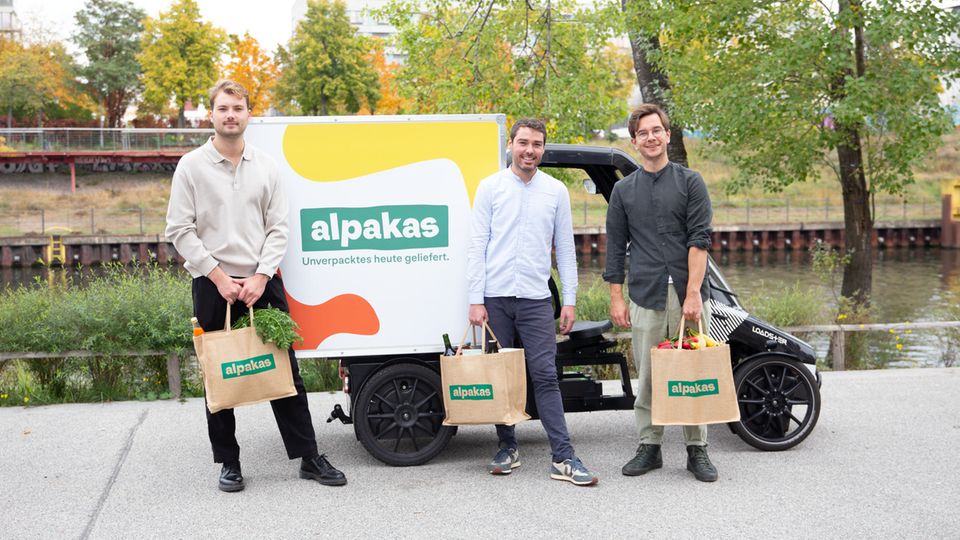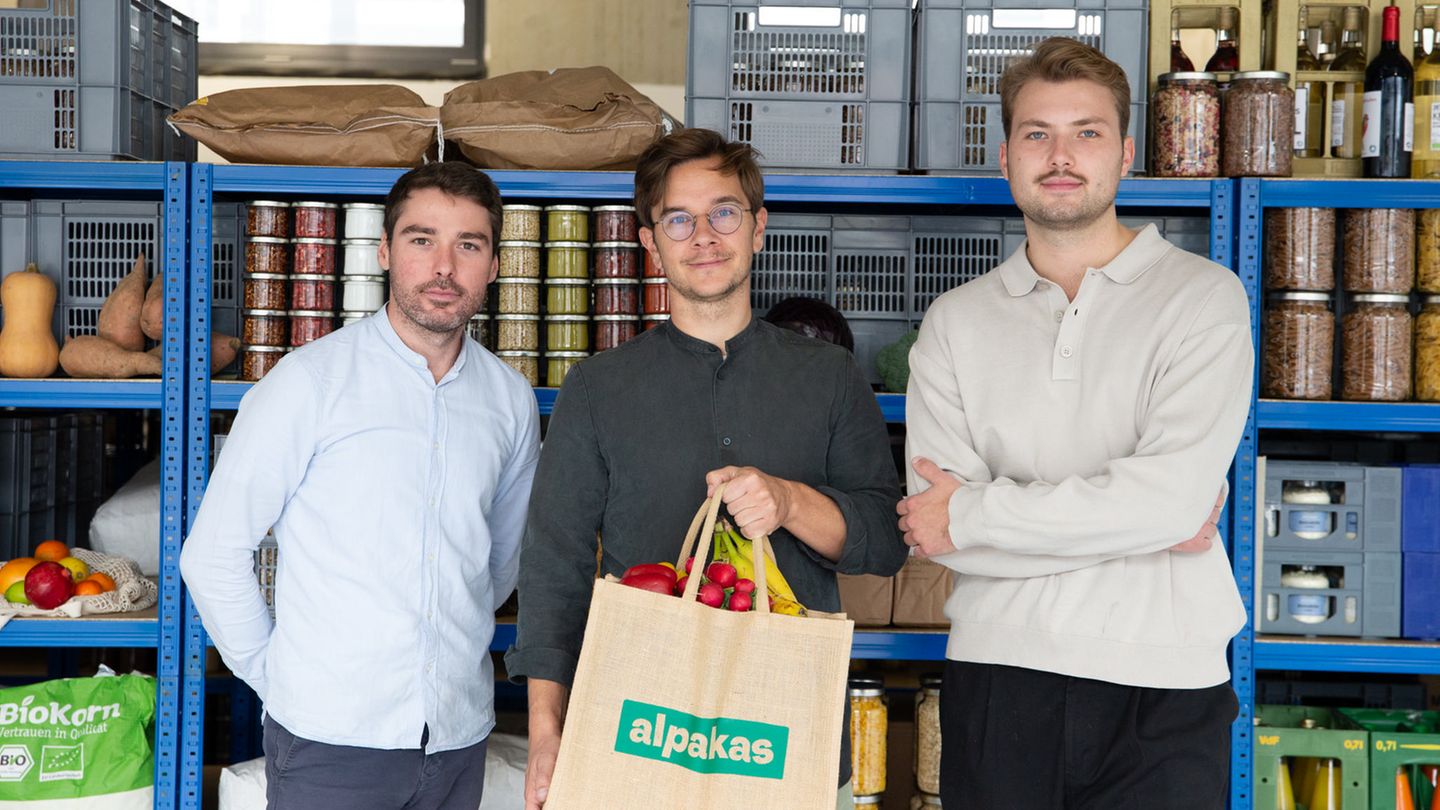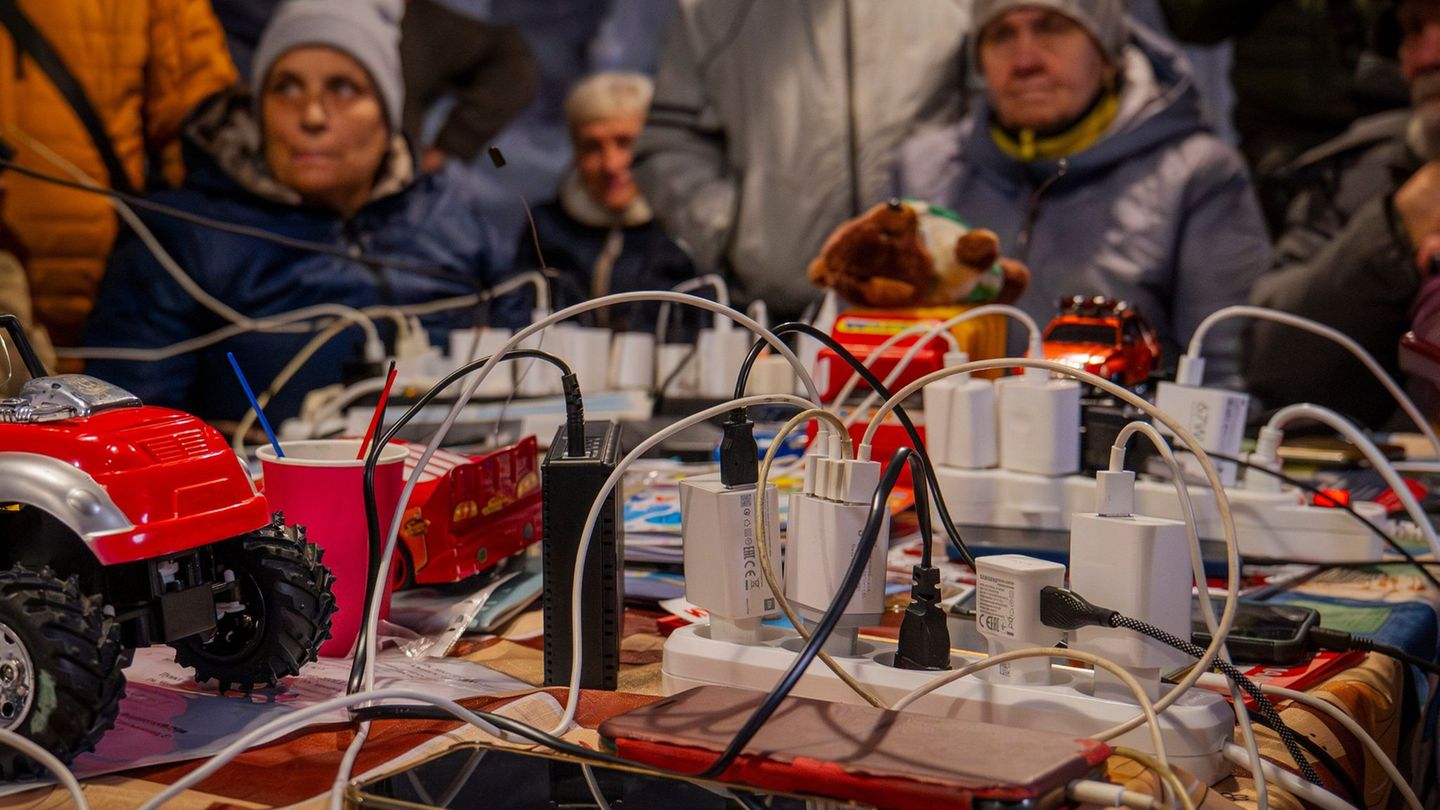Shopping plastic-free is trendy, but in practice it is complicated. A delivery service for unpackaged food now wants to make it easy for consumers. The Berlin start-up Alpakas will receive millions for this – including from the first Gorillas investor.
From Hannah Schwaer
Antony Roczek pulls the hairnet over his blond head, then ties a plastic apron around himself. “Hygiene regulations,” says the 25-year-old entrepreneur. If his delivery service to alpacas is to be successful, he cannot afford pollution. It trickles and clacks in the 260 square meter warehouse in Berlin-Moabit. Roczek turns into the bottling line behind a row of shelves. At a stainless steel table, a young man is shoveling quinoa from a 20-kilo sack into jam jars. Next door, a colleague screws the lids shut and heaves boxes on the blue heavy-duty shelves. “We filled 4,000 glasses here last week,” says Roczek. Before sales can start at the end of October, an empty row of shelves has to be filled.
Roczek and his colleagues Tomy Eitner, 31, and Simon Chorzelski, 36, want to set up something with their start-up Alpakas that no one has successfully scaled up to now: a delivery service for unpackaged food. “We want to make it much easier for people to live sustainably,” says Managing Director Chorzelski. Shopping should feel like going to the weekly market: with local products, organic quality and reusable packaging. And without plastic waste. Corresponding concepts have so far been a niche in retail. “We believe that the unpackaged approach works better in the delivery business than in the store,” says Chorzelski with conviction. After all, the customer is relieved of the task of transporting and cleaning the reusable containers.
Delivery services are booming
From America to China, investors are currently investing hundreds of millions of euros in the online grocery delivery business. The industry is booming, because there is a billion-dollar market to be distributed. In Germany alone, the retail sector has an annual turnover of around 204 billion euros with food and beverages. Only two percent of the proceeds are made online.
However, the pandemic has broken old habits and given the online segment a boost. Within a very short space of time, around half a dozen start-ups have entered the market in Germany that bring groceries home by ordering an app. The best-known among them, the Berlin company Gorillas, is now worth around 2.5 billion euros.
Alpacas gets money from gorillas investor
“Fast delivery of goods and food based on a decentralized infrastructure will prevail,” investor Christophe Maire is convinced. With his company Atlantic Food Labs, he was one of the first donors of gorillas. He is also involved in alpacas. Maire believes there is still room for more specialized delivery services. “Just like in the offline world, we see segmentation,” says Maire.
In addition to Maire, other well-known donors also believe in alpacas. The start-up, founded in 2021, recently secured a single-digit million amount in the form of a convertible loan. Investors include Atlantic Food Labs, top managers Markus Windisch and Nils Hermann from the Dax-40 group Hellofresh and Blue Impact, the fund of series founder Lawrence Leuschner, the head of the e-scooter start-up Tier Mobility.
Shopping without plastic
In the Alpakas warehouse, co-founder Antony Roczek walks through the rows of shelves, past bottled beans, rice and pasta dishes in a yogurt glass. The start-up has around 500 products in its range, including fresh fruit and vegetables, beverages, dairy products and toilet paper. The products are to be delivered either in returnable jars, in reusable jute bags or compostable bags. The promise: Zero Waste.
Roczek stops at the cooking oil and pulls a brown glass bottle from the shelf. “We have been looking for a long time for a dealer who delivers oil in a deposit jar,” he says. The reason is the time-consuming cleaning.

For other products, too, retailers hardly offer any plastic-free solutions. “Hygiene, drugstore and household are extremely difficult,” explains the founder. It is similar with the refrigerated shelf. For this reason, the company does not initially offer fresh meat and fish.
With his concept, alpacas is entering a niche that has become more and more popular in recent years. Even established supermarket chains such as Rewe or Aldi now adorn themselves with anti-plastic campaigns. They are good for the image, but they also have an economic necessity: The EU wants to present a new draft for stricter packaging guidelines by 2022 at the latest.
Germans produce 19 million tons of packaging waste per year
In Germany, the amount of packaging waste has risen continuously over the past 20 years. The Federal Environment Agency recorded almost 19 million tons of packaging waste per year in the last measurement in 2018 – an increase of 35 percent compared to 1998. The authority attributes the flood of rubbish on the one hand to the booming to-go gastronomy. On the other hand, the trade with smaller portions is adjusting to the growing number of one- and two-person households – and is thus producing more packaging.
Alpacas wants to avoid the waste problem by intervening in the supply chain beforehand. The start-up buys most of its products in bulk and fills them into reusable jars in the warehouse. When the glasses are returned, they are cleaned on site. The young company sources liquid products such as yoghurt, milk and orange juice from local retailers with reusable concepts.
Start-up promises prices like those in the health food store
If you order via the website by 5 p.m., the goods will be delivered to your door that same evening. The start-up relies on the milkman principle: the couriers use an electric cargo bike to travel a previously optimized route in order to cover as many households as possible on one tour. They also collect deposit jars again. A fee of 50 to 80 cents is due, depending on the size.
The prices are competitive with the normal organic supermarket, promises managing director Chorzelski. From an order value of 25 euros, delivery is free. If you order less, you have to pay a fee of 3.90 euros. Alpacas is thus positioning itself as a solution for sustainable weekly shopping.

Established delivery start-ups such as Gorillas or Flink, on the other hand, want to score primarily with speed. They promise a delivery time of ten minutes. In terms of working conditions, the industry therefore has a bad reputation. Here, too, Alpacas want to stand out: “We pay above the minimum wage,” says Managing Director Chorzelski. In addition, nobody has to carry heavy loads on their backs. He refers to the electric cargo bikes with driver’s cab, which would make driving out much more convenient, even in wind and weather.
There is still a niche left unpacked
But can the unpackaged business also operate profitably? E-food expert Udo Kießlich is cautiously optimistic about the prospects. “The concept is certainly not attractive to the broad mass of the population,” he says. In the niche, however, it could definitely reach a target group. There is still a gap in the market for organic delivery services in particular. The big question is whether the offer will convince customers in the long term. “In continuous operation it depends on how large the range is and whether the price level is really comparable with the organic market.”
Jane Stock is a technology author, who has written for 24 Hours World. She writes about the latest in technology news and trends, and is always on the lookout for new and innovative ways to improve his audience’s experience.




